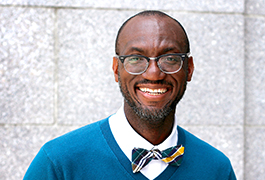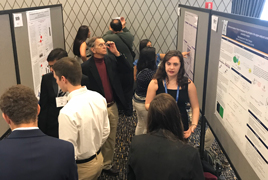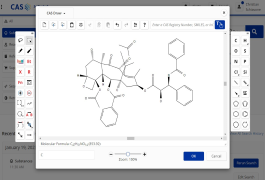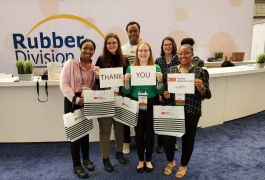Forging Your Commitment to the Scientific Community
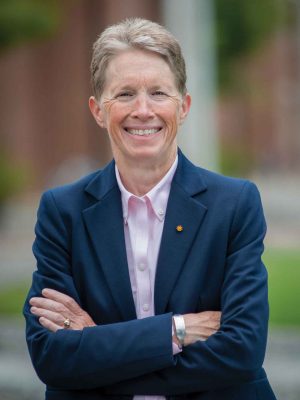
When people ask me to how they can have successful careers in science, I think back to advice I got in the early stages of my career that has stuck with me to this day. I also think about two important dimensions to a career in science: the individual and the commonwealth of the scientific community. As you move through various stages of your career, you should continually ask yourself how to best advance your own personal growth and development, and how your professional activities affect and contribute to the growth and advancement of our respective professional communities.
As you journey through your undergraduate experience, I urge you to think of the following ideas as action steps for ensuring that our commonwealth is a healthy and thriving one.
When people ask me to how they can have successful careers in science, I think back to advice I got in the early stages of my career that has stuck with me to this day. I also think about two important dimensions to a career in science: the individual and the commonwealth of the scientific community. As you move through various stages of your career, you should continually ask yourself how to best advance your own personal growth and development, and how your professional activities affect and contribute to the growth and advancement of our respective professional communities.
As you journey through your undergraduate experience, I urge you to think of the following ideas as action steps for ensuring that our commonwealth is a healthy and thriving one.
Cultivate Your Professional Reputation
For better or for worse, your reputation will follow you throughout your studies and your professional career. Your reputation is your brand, and since the scientific community is, in many respects, specialized and small, members of the community will often know you by reputation before they ever meet you. Personal and professional integrity is the foundation of the scientific enterprise, and it is fragile. So it’s important to be aware that while it takes a whole community of scientists to build its reputation for integrity, it’s also relatively easy for the actions of individuals to compromise that reputation.
Bear in mind, too, that other aspects of your reputation—your passions, knowledge, communication style, character, and work ethic—will play a key role in guiding your career path, skill development, and ultimately exploring opportunities for professional advancement.
Persist
Life as a professional scientist is inevitably fraught with setbacks and failures. It is important to recognize failure as central to science since the advancement of scientific fields relies as much on the rejection and refutation of hypotheses and theories as it does on corroboration and breakthrough discoveries. In many cases, “failures” in the laboratory provide valuable knowledge that guides the community away from blind alleys and toward more promising avenues of inquiry.
Fortunately, I learned early on that setbacks are inevitable, and that persistence and resilience are essential qualities in a scientist. At Gettysburg College, I had big ideas about majoring in chemistry, but I struggled to grasp some of the basic concepts of chemistry. In fact, after a lackluster early performance, my chemistry advisor told me straight out that I should find a different major. In the face of my own struggles with the material and my advisor’s discouragement, it would have been easy to walk away and find another major. In fact, I almost did just that. Yet somehow, I found that these hurdles also sparked their own form of encouragement in me, as I discovered that I wanted to prove to myself and others that I could reach my goal.
The epiphany inspired me to study nights and weekends, asked my roommate for help, and seek out professors in their offices. I managed to hang in there with passing grades, and then, when I made it to Physical Chemistry, something remarkable happened: suddenly things started to click and I felt that I was really becoming a chemist!
I don’t know why PChem was the one subject that gave me that “aha” moment, especially since math is not my strong suit. Perhaps my brain needed time to mature. Or maybe I needed time to mature. Whatever the reason, all the hard work, the support of many, and my belief in myself were starting to pay off. I learned from this early experience that in science, there is an article of faith—faith in the process itself, in consistent effort, and in the worthiness of the goal that lies at the core of our ability to persist through setbacks.
Find a Mentor, Be a Mentor
As I was struggling in my undergraduate years, I began to learn about the importance of community support as a path to personal progress. My friends, professors, and family all wanted me to succeed, and they were willing to offer support in different ways. It was a revelation to me when I found that my own success was directly linked to my ability to know what help I needed, seek it out, and accept it. Although I may not have recognized it at the time, these interactions with others were some of my first experiences with scientific partnership on a very fundamental level.
None of us has the answer on our own. As scientists, we have to allow ourselves to seek help from others and offer help to others where we can. From a community standpoint, the limitations on our own expertise, capabilities, and knowledge is why collaboration and partnership is an essential element of science.
From an individual standpoint, these limitations are where we find opportunities for mentorship. At each stage of our careers, we can benefit from the guidance of someone with more experience and an active interest in sharing it.
On the flip side, at each stage of our career, we can find opportunities to serve as a mentor. The undergraduate students who helped me get through those early chemistry classes were mentors who offered not only knowledge but also encouragement and solidarity. As an upperclassmen, I tried to return the favor by tutoring and guiding younger students. As a graduate student and, later, as a postdoc at the Pacific Northwest National Laboratory, I found people who were willing to help me build my technical skills, hone my soft skills, develop a professional network, and embrace my unique qualities: my introversion, my quirkiness, my passion for the environment.
I still have more senior colleagues whom I consider mentors, and I have more junior colleagues whom I mentor. Skill development is only one benefit of mentoring relationships. In my experience, mentoring has often led to lifelong friendships and a deeper sense of belonging in the scientific community we share.
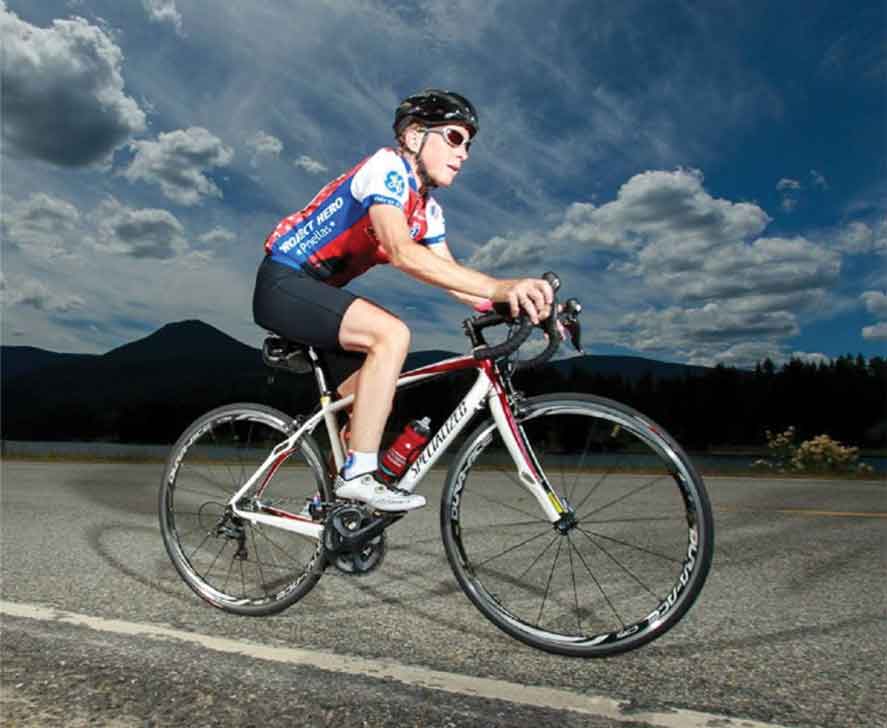
Now Go for It!
I’m an avid bicyclist. One of my cycling idols—Eddy Merckx—once said, “Ride as much or as little, or as long or as short as you feel, but ride.” I sometimes do very long rides of 100 miles or more, and every time I get on the bike, I have to turn off the small but persistent voice of doubt in my head. Of course, bigger challenges come with bigger risks of failure. In these cases, I remind myself I that don’t actually have to ride 100 miles; in that moment, I only need to convince myself to get on the bike and start pedaling.
Once I’m in the saddle, warmed up, moving, talking with other cyclists, and drafting on those in front of me, invariably, the goal that had previously seemed unattainable suddenly seems to be within reach.
This analogy applies to us as scientists as well. Science is, after all, about pushing frontiers and reaching beyond current limits. By definition, a life in science is a life on the edge. We need to set ambitious goals that scare us, and trust our training, our skills, and our colleagues to help us make the journey. Indeed, nothing else will.

